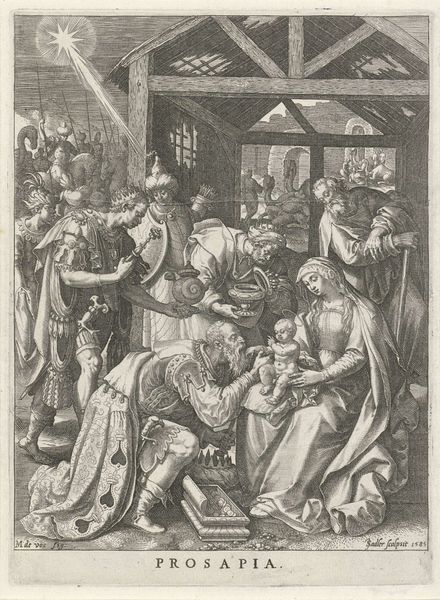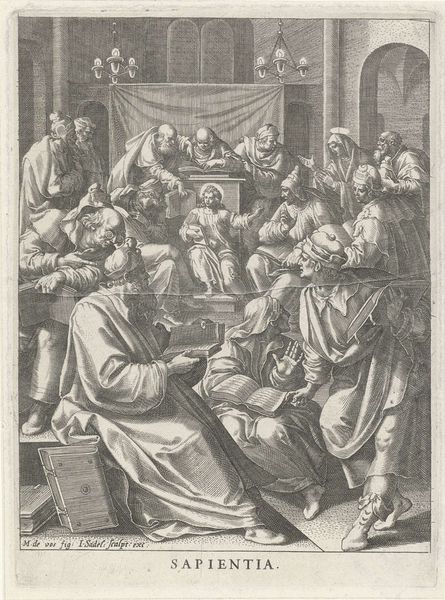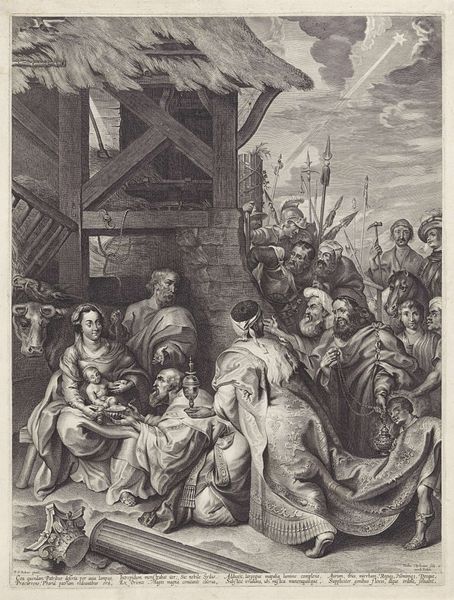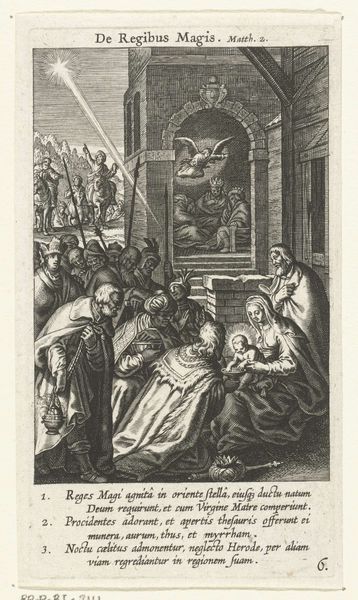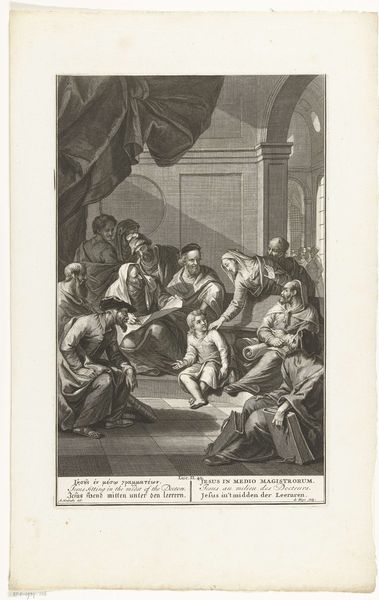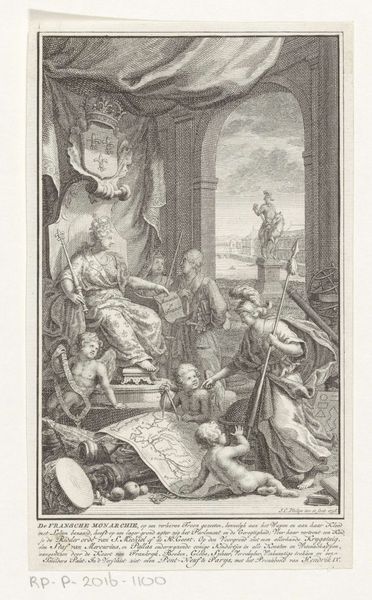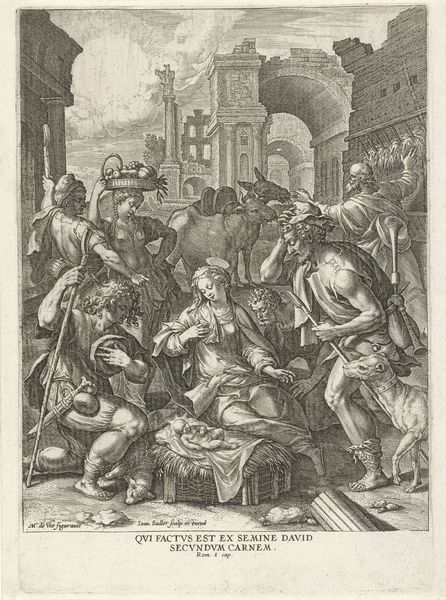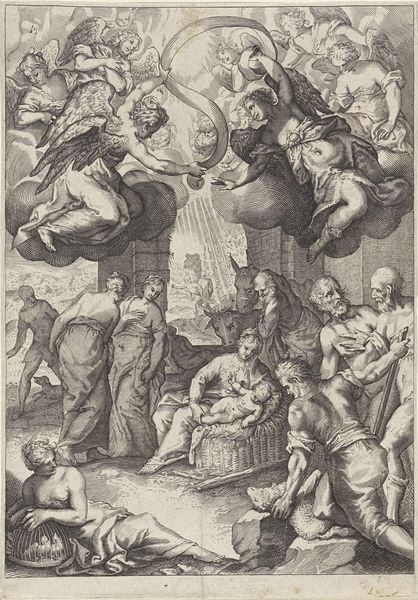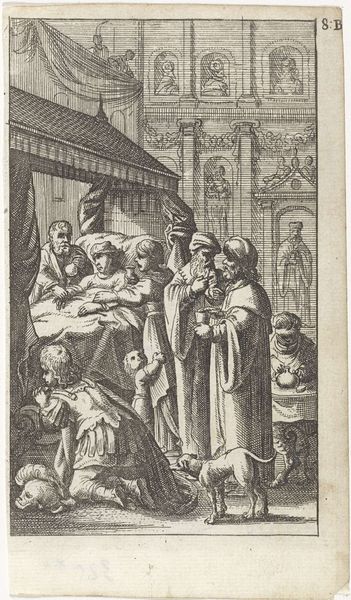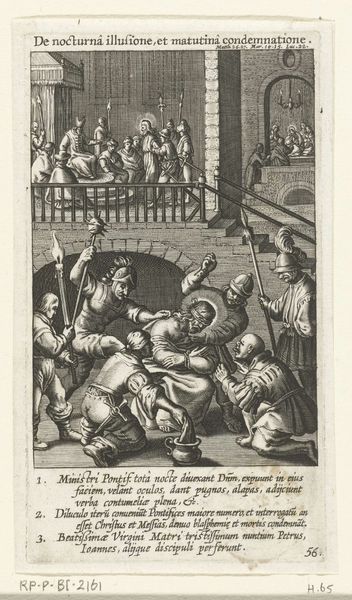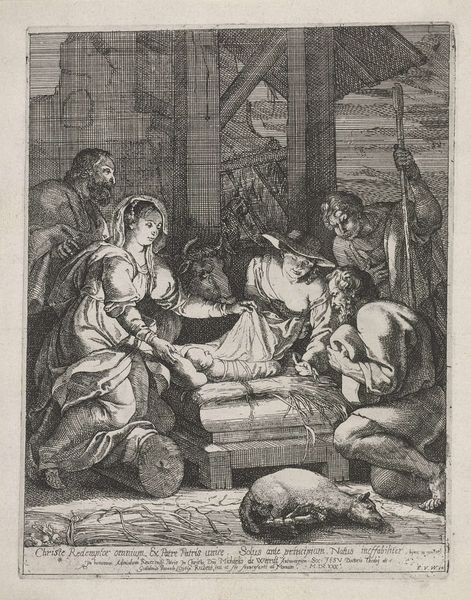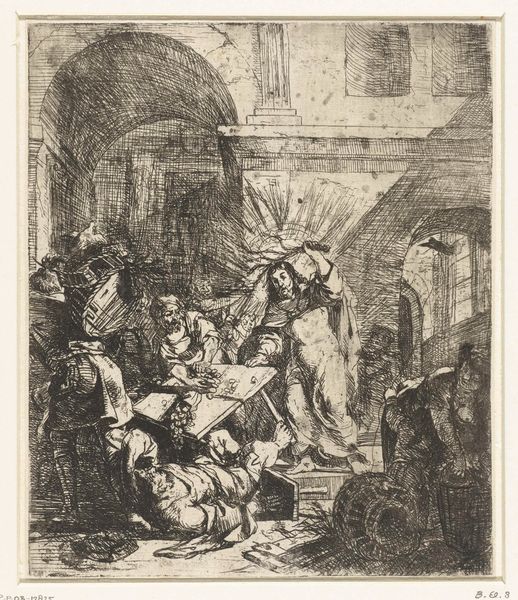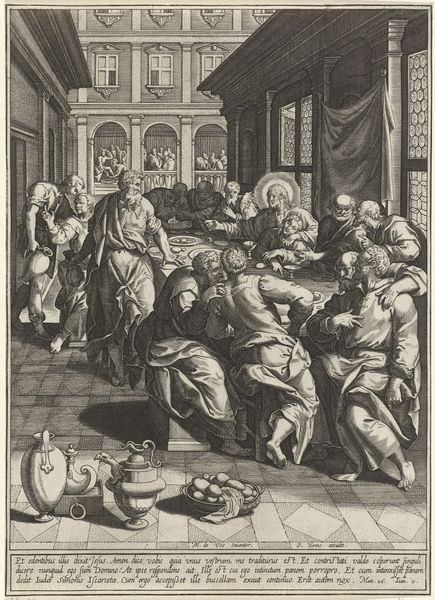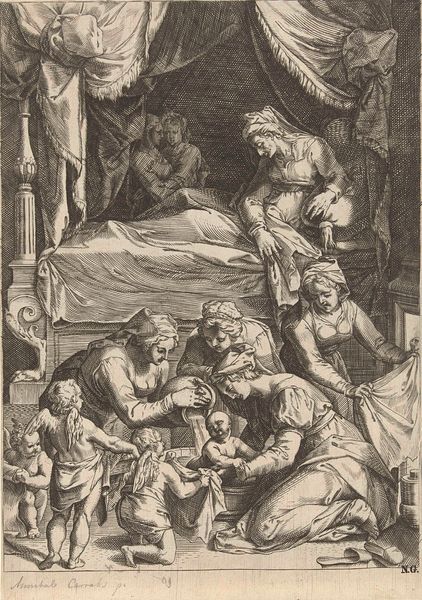
print, etching, engraving
# print
#
etching
#
figuration
#
11_renaissance
#
history-painting
#
northern-renaissance
#
engraving
Dimensions: height 420 mm, width 247 mm
Copyright: Rijks Museum: Open Domain
Jacob Matham made this engraving, “The Adoration of the Kings,” around the turn of the 17th century in the Netherlands. The image depicts the three kings, or wise men, presenting gifts to the infant Jesus. But this scene isn’t just a biblical illustration; it reflects the social and political realities of Matham’s time. Notice how one of the kings is depicted as Black. This was a common trope in European art, symbolizing the universality of Christ’s message extending to all races and nations. Yet, it also coincided with the rise of the transatlantic slave trade, raising complex questions about representation and power. Who is this Black king and what does his presence signify within a culture that was actively involved in the subjugation of African people? As art historians, we must consider the socio-economic context in which this image was created, using a range of documents and other historical sources in order to explore the complicated meanings embedded within it.
Comments
No comments
Be the first to comment and join the conversation on the ultimate creative platform.
